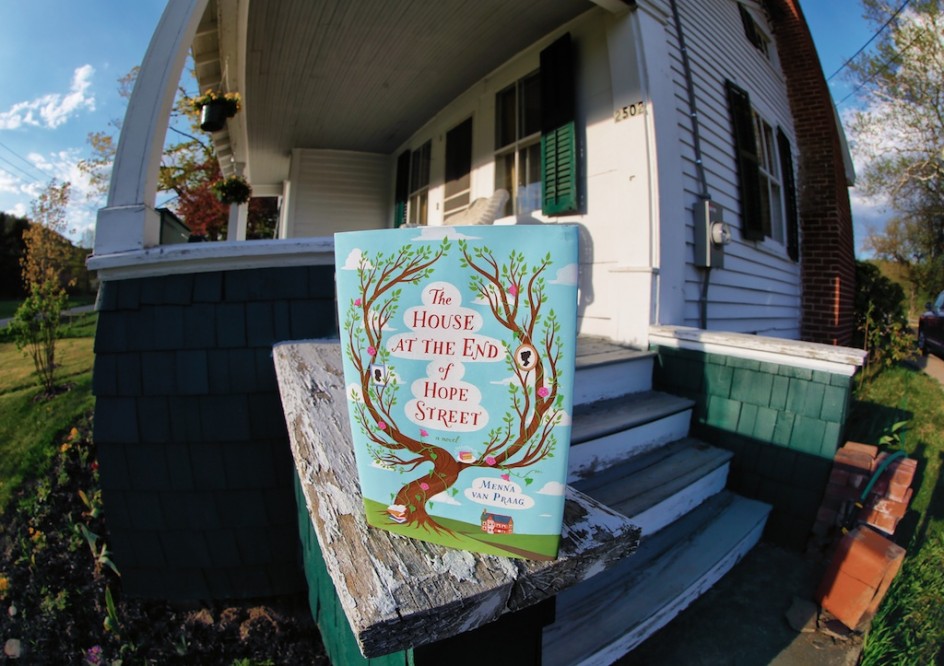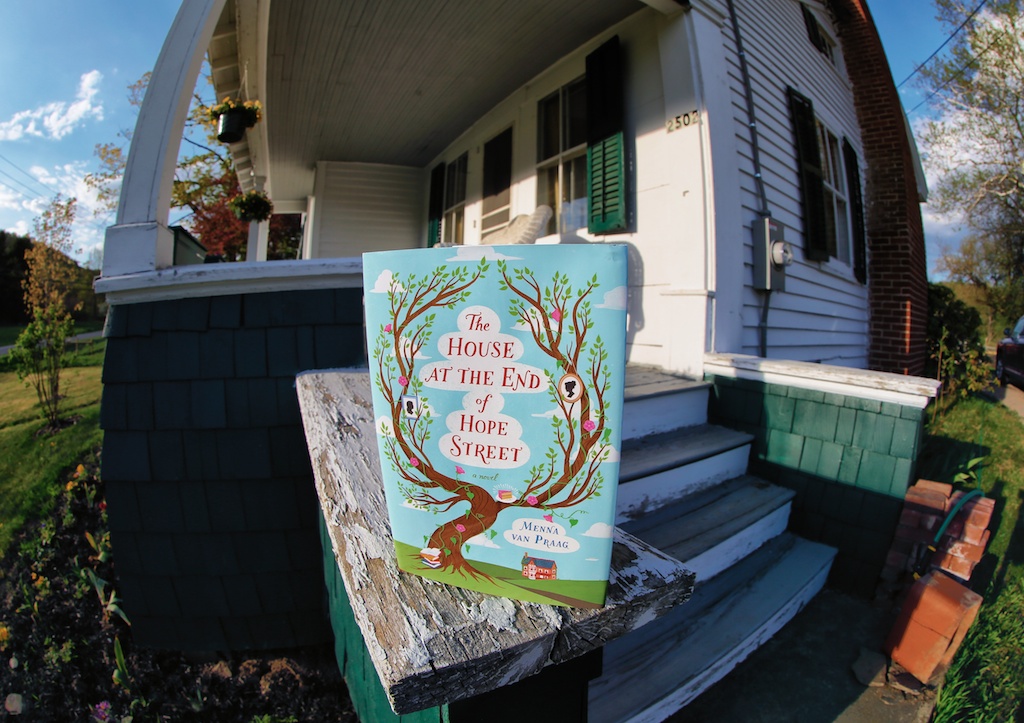
These reviews are presented in conjunction with Battenkill Books, my local bookstore, a great independent bookstore. If you like this review and/or want to purchase the book please consider getting it from Battenkill Books, by calling them at 518-677-2515 or visiting their website, which takes Paypal and ships anywhere in the world. You can e-mail them also at [email protected]. Buying local isn’t just a slogan, it speaks to our culture, the values we love and to the survival of individuality and creativity. I have an e-book reader, but I buy most of my books at bookstores. It need not be one or the other, but I don’t think any of us want to live in a Wal-Mart world, a world without small businesses or bookstores. You can order or pre-order any of my books through Battenkill and I will sign and personalize them. P.S., I appreciate the thought, but I do not need book recommendations, I have a huge pile on my table waiting to be read. This week’s review is a real pleasure to write.
–
There are very few books you just love from the first sentence and keep on loving. “The House At The End Of Hope Street,” by Menna van Praag (Viking) is one of them. This story is magical, whimsical, atmospheric, literary and great fun and I loved it from the first sentence to the last. There is nothing bad to say about this novel, there isn’t a false note, it is enchanting and will just pick you up and carry you happily along. I doubt there are many women in the world who will not love this wonderful story of house in Cambridge, England visible and open only to deserving women in need of help, usually but not always because of men. The house on Hope Street is a magical place and desperate women can go there, but they don’t have forever to solve their stuff. They will have ninety-nine days only to turn their lives around, and not a day more. The house’s guests have included Dorothy Parker, Virginia Woolf, Beatrix Potter, Elizabeth Taylor, Agatha Chistie, Emily Davis, and Greer Garson. Even though they all left Hope street, their spirits and observations and opinions remained behind.
What a great idea for a story, so satisfying to read. The novel opens when Alba Ashley, the youngest Phd student at Cambridge University suffers the worst event of her life, leaves the college abruptly and finds herself at the doorstep of 11 Hope Street. (The women who go there seem to be called by the house itself, none of them have any idea what is awaiting them inside.) All of the previous visitors, famous and otherwise, are portraits on the wall of the house, and they engage the troubled women as well as one another in advice, wry commentary and parable. The house has all sorts of ways to engage it’s residents and get them out and moving on with their lives – people in the outside world are manipulated, doors open and close, rooms appear and disappear, there are whispers, ghosts and mysterious scents from the beautiful garden most visitors don’t notice.
Once inside, Alba meets the sultry Carmen, an exotic and silenced singer who is haunted by something mysterious buried in the garden; Greer an actress who’s hiding a very dark secret of her own and the enchanting Peggy, the elderly mistress of the house – she entertains her newly found lover Harry on Sundays, eats chocolate cake for breakfast and lives in a tower that the guests are forbidden to enter with a grumpy cat. Women go to the house to sometimes hide, but the house doesn’t let them hide for long.
When the brilliant and devastated Alba enters the house on Hope Street, she begins a journey of self-discovery that is poignant and inspiring. She comes to understand herself, her life and her identity. You will find yourself rooting for her from the first encounter as she deals with vicious siblings, a mother who committed suicide and a cruel and vengeful father who, she discovers, is not her real father after all. With the help of the house and the other women, Alba sets out to find her real father, who has spent much of his life pining for her. There are plots and sub-plots and the book moves very quickly. I was done before I knew it, and sorry it had ended.
The book is a wondrous read, you not only hear from the characters, you are just as apt to come across a chat between Agatha Christie and Doris Lessing. I have a hunch this wonderful book was inspired by a true story, the mysterious disappearance of Agatha Christie after her first marriage fell apart. Christie vanished for eleven days and never told anyone where she went to pull herself together but she emerged and went on to be one of the best-selling novelists in the history of the world. It has always been a great literary mystery. Maybe she went to Hope Street.
The house on Hope Street is a living entity, it has a will and power of its own and it works with the charming and sensitive Peggy to challenge it’s residents to figure out their lives and turn then around before the ninety-nine days are up. Peggy herself is challenged by the house to live her life, another of many clever twists in the story, which never stops moving.
The story moves along like a carousel ride, one shining moment after another. I say it’s a women’s book because it is about women, many of whom have their struggles with violent or insensitive men – an old story. I loved the book and could not put it down but I am not necessarily typical of other men. I insisted to Maria that she read it and she couldn’t put it down. Neither could my daughter, a voracious reader and a tough critic.
The book can be painful at moments, but never violent or grim, and it is both uplifting and affirming. Nobody will feel bad or down after reading this novel. The house is nothing but encouraging. Clever as it is, “The House At The End Of Hope Street” has something very serious to say about the ways women – and men – support one another and can overcome great obstacles to battle their way to fulfilling lives. I highly recommend it.
Please consider buying it from Battenkill Books or your local independent bookstore. 518 677-2515. Machines are important but humans are a lot nicer to deal with.

